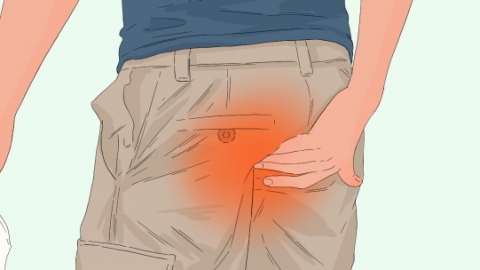Is it effective to apply tea seed oil on hemorrhoids?
In general, tea oil cannot cure hemorrhoids and offers only limited relief in the early stages. The specific analysis is as follows:

Hemorrhoids are essentially varicose enlargement of the anal venous plexus or congestion of submucosal blood vessels, with painful defecation, itching, and bleeding being typical symptoms. Tea oil is rich in oleic acid and vitamin E. When applied externally, it forms a thin oily film on the surface of the anal canal, reducing mechanical irritation caused by fecal friction and mildly suppressing local inflammatory responses. Applying a small amount after daily cleansing with warm water may help alleviate discomfort in cases of first-degree hemorrhoids accompanied by dryness and pruritus, while also promoting healing of minor fissures.
However, if thrombosis has already formed within the hemorrhoidal node, there is recurrent dripping of blood, or infection is present, oil application alone cannot resolve venous congestion or control bacterial proliferation. Relying solely on tea oil may delay proper treatment. For patients with grade III or higher prolapsed, incarcerated, or frequently recurring hemorrhoids, standardized treatments such as rubber band ligation, sclerotherapy, or surgery are necessary.
Daily management is equally important. It is recommended to consume more than 25 grams of dietary fiber per day, drink over 1,500 milliliters of water, engage in regular physical activity, and minimize time spent on the toilet. If bleeding or pain persists for more than one week or progressively worsens, prompt medical consultation is essential. A specialist can then determine appropriate treatment—such as suppositories or ointments containing local anesthetics, steroids, or vasoconstrictors—or recommend minimally invasive procedures or surgery. Tea oil should only be used as a temporary adjunct and cannot replace standard medical care.








